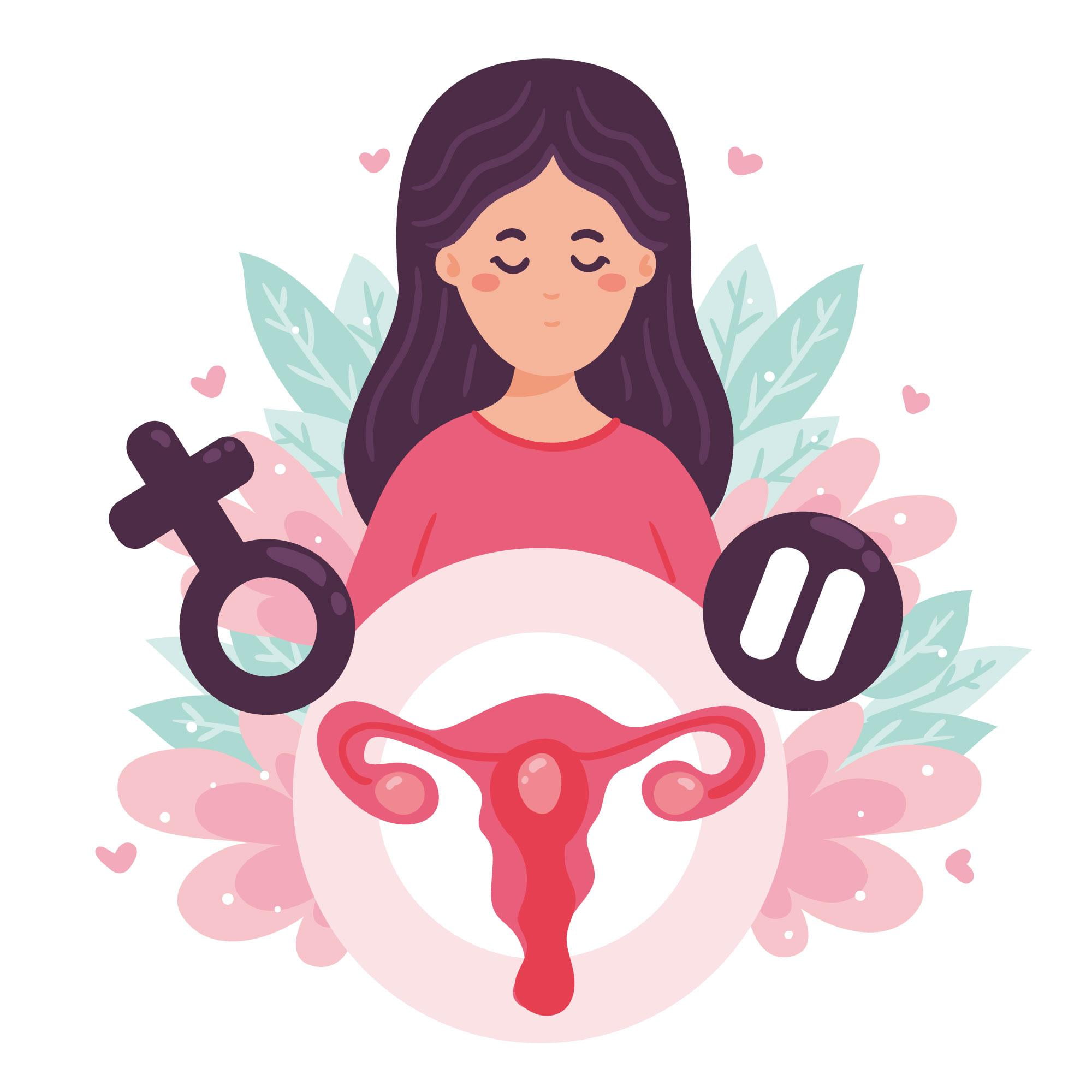Cancer Types
Ovarian Cancer
The Ovaries are on both the sides i.e. right and left. They are basically the reservoirs of eggs in the women. They also contain various other cells and tumors or cancers can affect each of these cells.
There are certain Ovarian Cancers which come up in women. These are called as Germs or Tumors.


Screening & Symptoms
Screening
There is no reliable screening test for ovarian cancer in asymptomatic women. However, for high-risk women (e.g., those with genetic mutations), screening may include:
- Transvaginal ultrasound (TVUS).
- CA-125 blood test (a tumor marker, though not specific to ovarian cancer).
Routine pelvic exams and genetic counseling are advised for those with a family history.
Symptoms & Signs
Ovarian cancer symptoms often mimic other benign conditions, making it hard to recognize early. Common symptoms include:
- Persistent bloating.
- Pelvic or abdominal pain.
- Difficulty eating or feeling full quickly.
- Urinary urgency or frequency


Diagnosis & Treatment
Diagnosis
Diagnosis typically involves a combination of:
- Pelvic exams.
- Imaging tests such as ultrasound or CT scans.
- Blood tests, including CA-125 levels.
- Biopsy: A sample of tissue is examined under a microscope to confirm cancer.
Sub-types & Stages
Ovarian cancer has several subtypes, with epithelial ovarian cancer being the most common. Others include:
- Germ cell tumors.
- Stromal tumors.
The stages of ovarian cancer are:
- Stage I: Limited to the ovaries.
- Stage II: Spread to pelvic organs.
- Stage III: Spread to the abdomen.
- Stage IV: Spread to distant organs, such as the liver or lungs.
Treatment Modalities
Treatment is usually multi-modal and may include:
- Surgery: Removal of the ovaries, fallopian tubes, uterus, and surrounding tissue.
- Chemotherapy: Drugs to kill or stop the growth of cancer cells.
- Targeted therapy: Drugs that target specific molecules involved in cancer growth.
- Radiation therapy: Rarely used for ovarian cancer but can help in certain cases.
- Immunotherapy: May be an option in advanced stages.

Do's & Don'ts During Treatment
Do's:
- Stay hydrated and maintain a nutrient-rich diet.
- Follow up regularly with your oncologist.
- Stay physically active as per your doctor’s advice.
- Seek emotional and psychological support.
Don'ts:
- Avoid exposure to infections, especially when immunity is compromised.
- Don’t skip medications or alter your treatment plan without consulting your doctor.
- Avoid smoking and alcohol.

Post Treatment Support, Followup Care and Surveillance :
Post Treatment Support: After treatment, patients may require ongoing support to manage any lingering side effects, cope with emotional challenges, and transition back to normal life. This may involve regular follow-up appointments, rehabilitation programs, and psychological counseling.
Follow-up Cancer Plan: A follow-up cancer plan typically includes a schedule for regular check-ups, screenings, and tests to monitor for any signs of recurrence or complications. It's crucial to adhere to this plan and promptly report any new symptoms or concerns to the healthcare team.
Surveillance & Monitoring for Indications for Recurrence: Surveillance involves regular monitoring through physical exams, imaging tests, blood tests, and other diagnostic procedures to detect any signs of cancer recurrence or metastasis early.
FAQ
Frequently Asked Questions
Risk factors for ovarian cancer include a family history of ovarian or breast cancer, inherited genetic mutations (such as BRCA1 and BRCA2), increasing age, never having been pregnant, hormone replacement therapy, and certain genetic conditions like Lynch syndrome.
Symptoms of ovarian cancer may include abdominal bloating or swelling, pelvic pain, difficulty eating or feeling full quickly, frequent urination, changes in bowel habits, fatigue, and unexplained weight loss. However, it's important to note that these symptoms can be vague and may mimic other less serious conditions.
The prognosis for ovarian cancer varies depending on factors such as the stage at diagnosis, the type of ovarian cancer, and how well it responds to treatment. While early-stage ovarian cancer is often curable, advanced-stage ovarian cancer may be more challenging to treat, but significant advances in treatment have improved outcomes for many patients.
While there is no guaranteed way to prevent ovarian cancer, some strategies may reduce the risk, including taking oral contraceptives (birth control pills), having multiple pregnancies, breastfeeding, maintaining a healthy weight, and undergoing risk-reducing surgeries for women with a high genetic risk.
